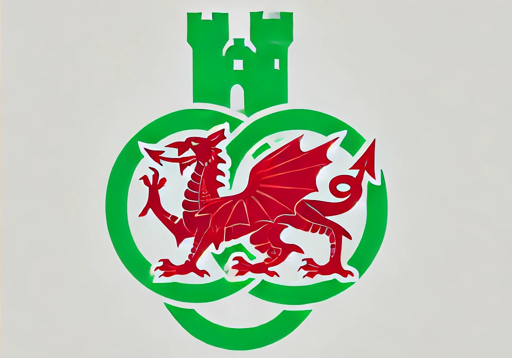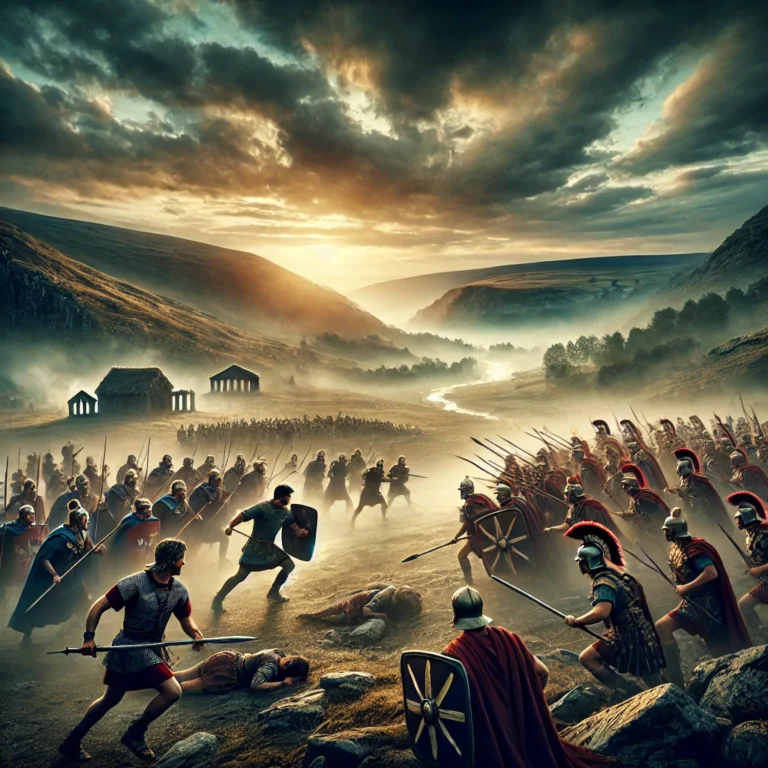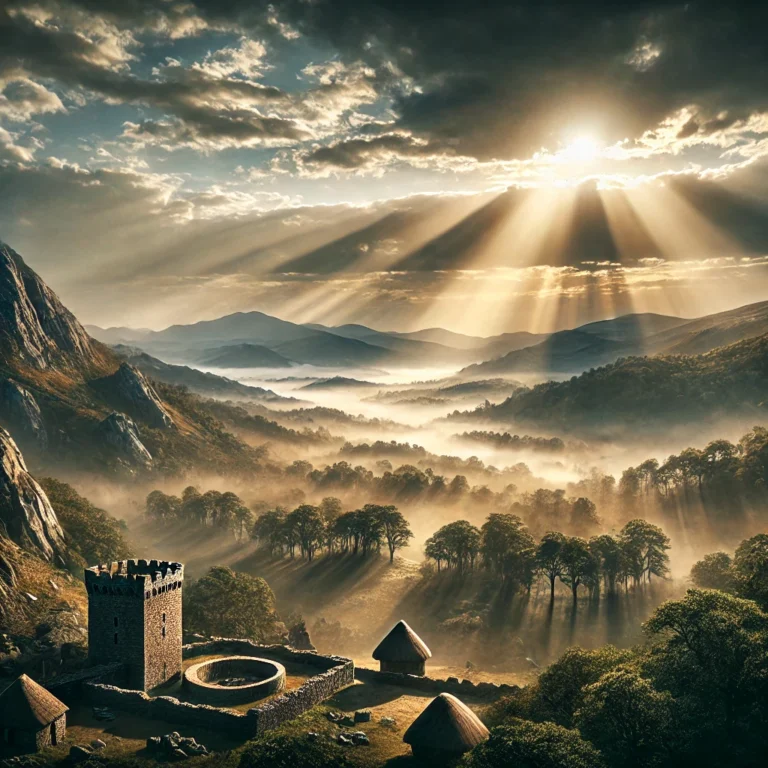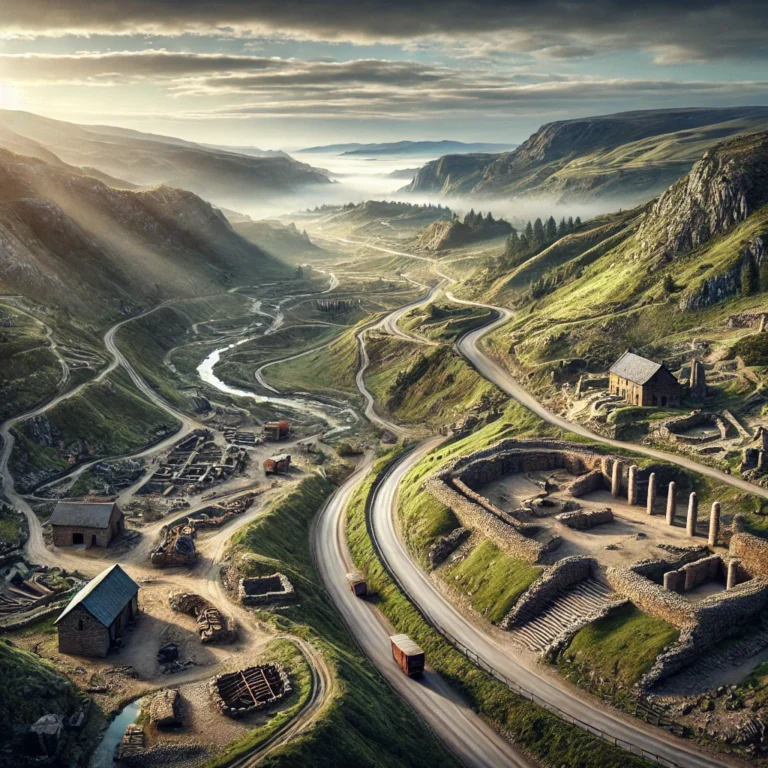Imagine a time when Wales was a rugged land of tribal warriors, mystical rituals, and deep-rooted customs. Long before the Romans ever set foot on British soil, Welsh tribes thrived in harmony with the landscape, building a culture as resilient as the hills themselves. This is the story of Pre-Roman Wales (500 BC – 43 AD), a land that has left few written records yet holds a captivating legacy that echoes through time. Join us as we journey back to uncover the secrets of ancient Welsh life and explore the customs that defined an age of warriors and clans.
Life in Pre-Roman Wales
Tribal Society and Clan Loyalty
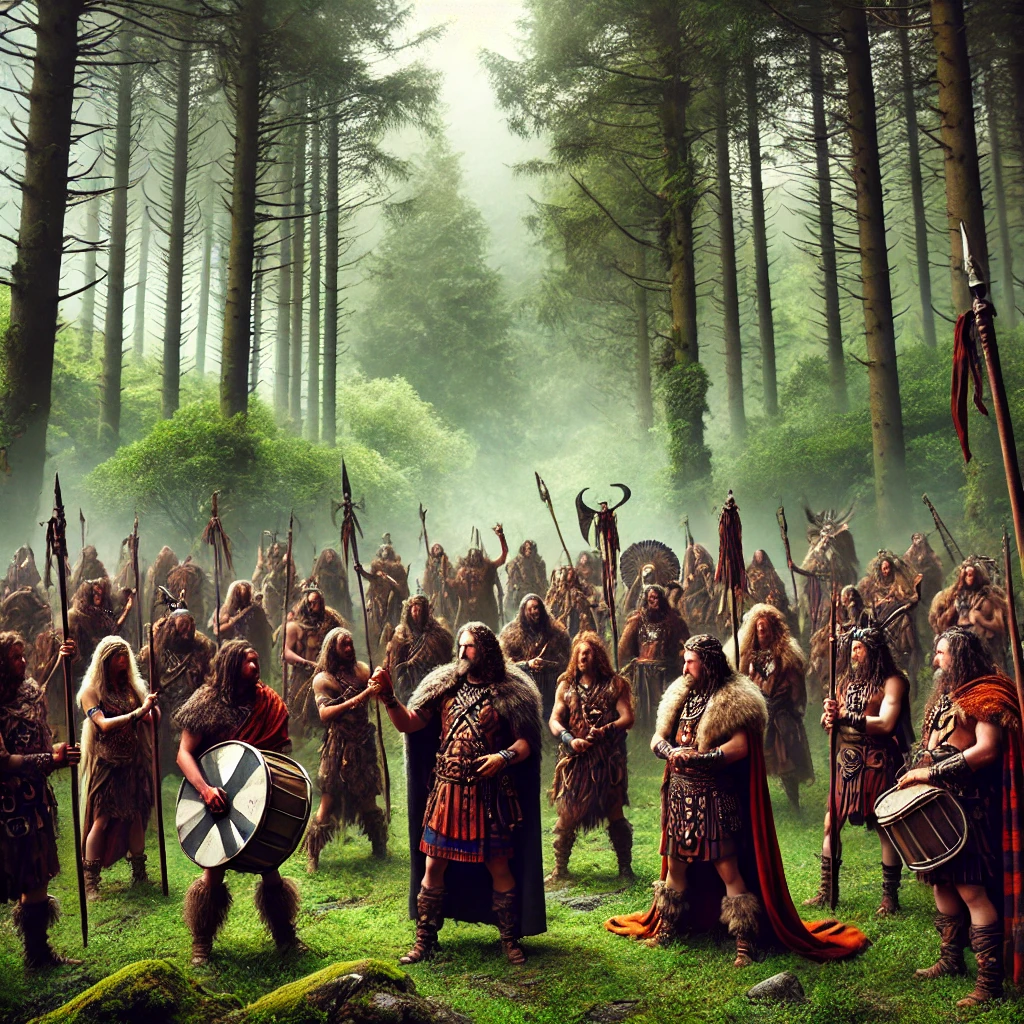
The Silures and Ordovices were two of the most resilient tribes, who fiercely resisted Roman forces and maintained their own cultural identity.”
Source: Dr. Barry Cunliffe, Emeritus Professor of European Archaeology, University of Oxford.
The backbone of Pre-Roman Wales lay in its network of tribes, each led by a chieftain who commanded loyalty and respect. Welsh society was tightly woven, with family bonds forming the core of each clan. Loyalty to one’s tribe was paramount, and each member understood their role in supporting the community. Notable tribes, such as the Silures and Ordovices, defended their lands with fierce determination, often engaging in conflicts to protect their territories and resources.
Welsh tribes from the old kingdom of Wales were more than just groups of families; they were interconnected communities that relied on one another for survival and protection. This structure encouraged a sense of unity and strength that became a hallmark of Welsh identity. Each clan maintained its unique customs, celebrating victories and mournings together, with the chieftain acting as both a military leader and a symbol of tribal heritage.
Role of Chieftains and Tribal Leaders
Chieftains were more than just military leaders; they were custodians of tradition and guardians of their people. These leaders governed with authority, settling disputes and ensuring the safety of their tribes. In return, they commanded unwavering loyalty. Chieftains were expected to embody the virtues of strength and wisdom, guiding their people through both war and peace. Their decisions shaped the future of Pre-Roman Wales, setting the foundation for what would later evolve into more structured kingdoms.
A chieftain’s role extended to ceremonial duties, leading the tribe in seasonal festivals, harvest rituals, and rites of passage. This integration of spiritual and social duties strengthened the respect and loyalty that each tribe felt toward its leader, creating a unique system of governance that combined strength, respect, and community support. The legacy of these early leaders is still celebrated in modern Welsh identity as symbols of resilience and honour.
Warrior Culture and Defence
Training of Young Warriors
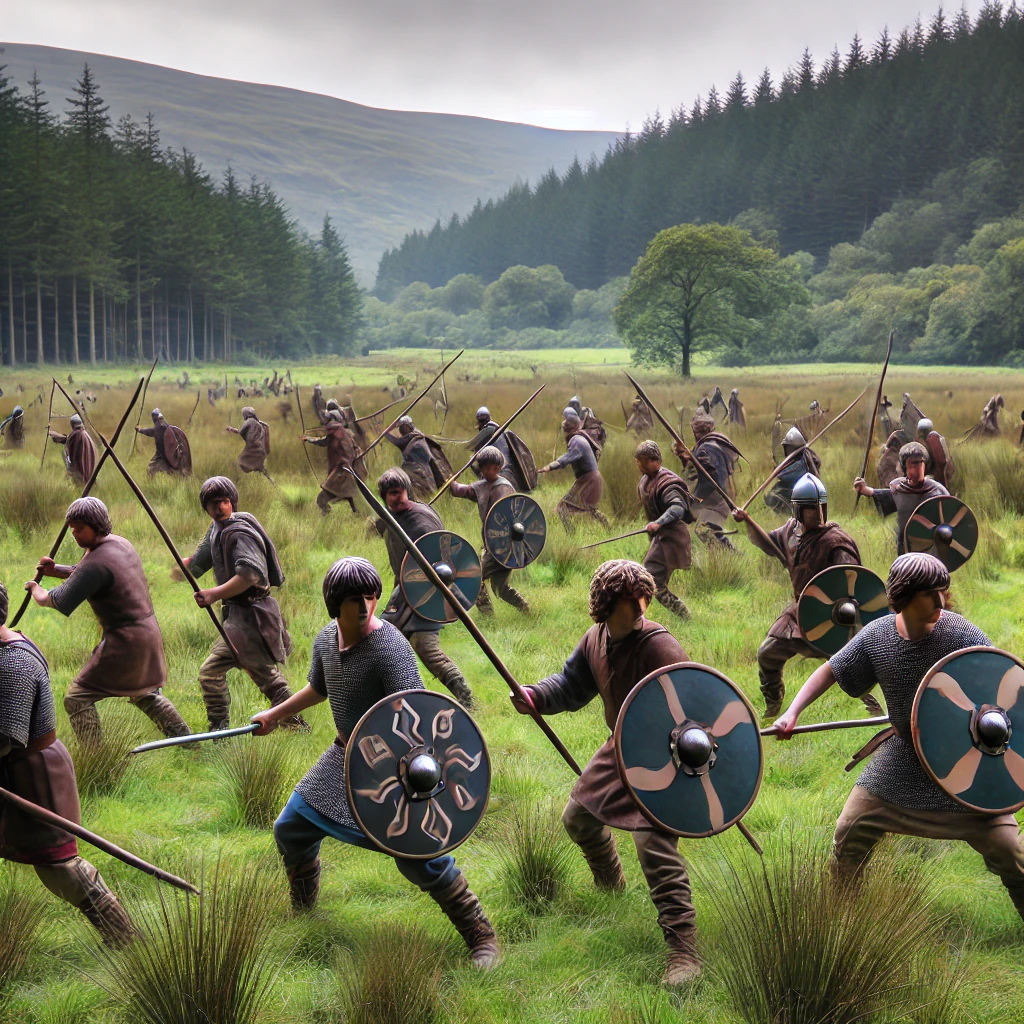
In Pre-Roman Wales, every young man was expected to defend his clan. From a young age, boys trained rigorously, learning to wield weapons like the spear and shield. Mastery in combat was essential, but warriors were also trained in survival skills, such as hunting and tracking. Training was not only about physical strength but also about instilling loyalty and a sense of honour. By the time they reached adulthood, these young men were prepared to defend their tribe with both skill and courage.
The process of becoming a warrior involved a series of initiation rituals. These rituals tested not only the physical strength of the young men but also their courage and commitment to their tribe. Success in these trials was celebrated by the tribe, marking the transition of boys into warriors. Such traditions reinforced the importance of loyalty and community defence, ensuring that each warrior felt a profound duty to protect their people.
Honour and Loyalty in Battle
The Celtic tribes of Wales were well-known for their guerrilla tactics and fierce resistance against invaders, particularly during the Roman occupation.”
Source: Dr. John Koch, Expert in Celtic Studies, Centre for Advanced Welsh and Celtic Studies
For the warriors of Pre-Roman Wales, battle was a matter of honour. Loyalty to one’s chieftain and tribe was sacred, and retreat was seen as shameful. Warriors followed a strict code, valuing bravery and loyalty above all else. Even in defeat, fighting valiantly was a source of pride. This code of honour strengthened the resilience of the Welsh people, as each battle was fought with the knowledge that they were upholding their ancestors’ legacy.
Welsh warriors were renowned for their fierce resistance against threats. Their skills in ambush tactics, combined with an intimate knowledge of their lands, made them formidable opponents. This deep-rooted warrior culture not only defended their lands but also became a symbol of Welsh pride and identity. Stories of these brave warriors were passed down through generations, embedding the values of courage and loyalty within the heart of Welsh culture.
Spirituality and Rituals
Nature and the Sacred Landscape
The people of Pre-Roman Wales held a deep spiritual connection to the land. Sacred sites, including groves, rivers, and stones, were scattered across the Welsh landscape. These places were revered as portals to the spiritual realm, believed to be inhabited by ancestral spirits. The Welsh tribes saw themselves as custodians of the land, performing rituals to honour the forces of nature. Their respect for the land was not merely practical; it was deeply spiritual, tying their identity to the very soil they lived on.
Festivals aligned with seasonal cycles, celebrating the changing of seasons, the harvest, and the renewal of life. These gatherings reinforced community bonds and paid homage to the natural elements. The land itself was seen as a living entity, deserving of respect and protection. To the ancient Welsh, caring for the land was not simply a matter of survival; it was an act of reverence, symbolising their deep-rooted bond with nature.
Druids and Mystical Practices
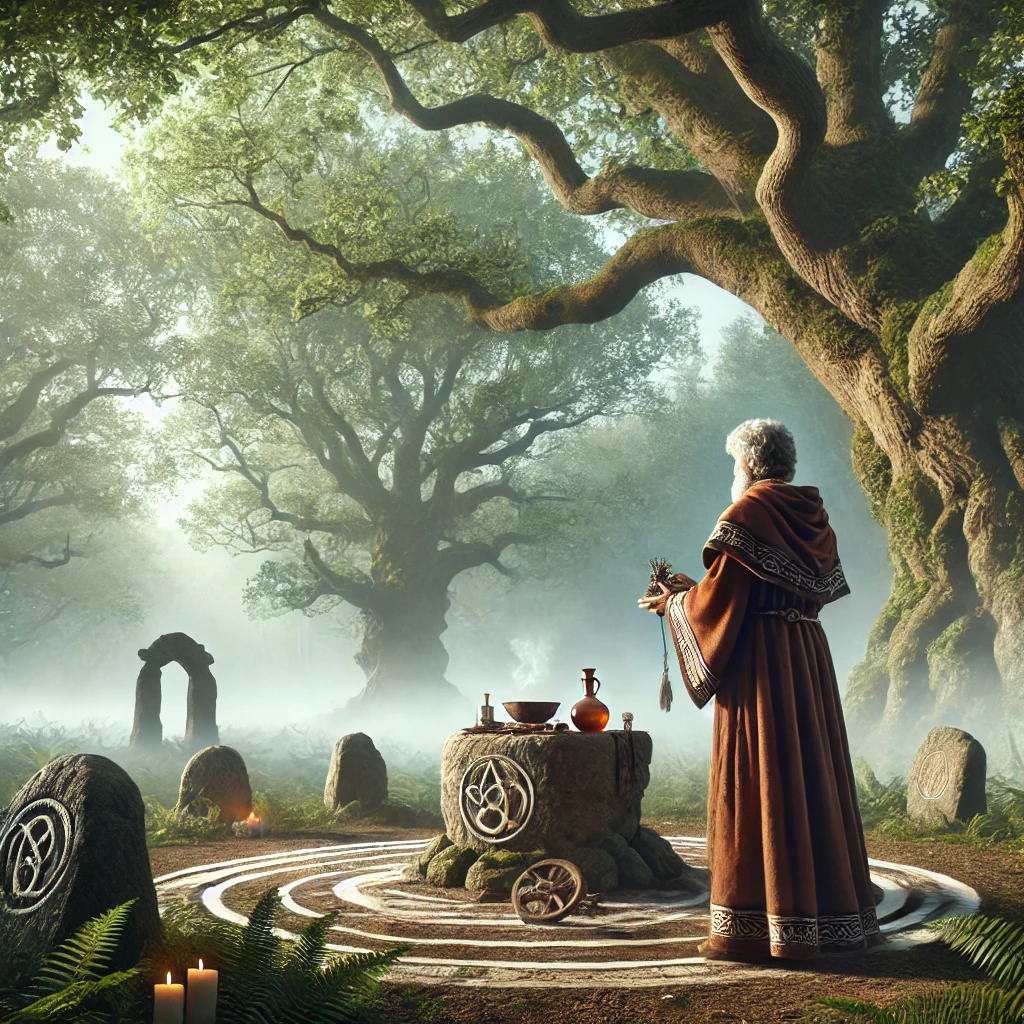
The Druids held a unique position in ancient Celtic society, serving not only as spiritual leaders but also as judges and mediators within their communities.”
Source: Miranda Aldhouse-Green, Professor of Archaeology, Cardiff University, and author of The World of the Druids.
The Druids were the spiritual guides of Pre-Roman Wales, serving as healers, philosophers, and intermediaries between the physical and spiritual worlds. They held knowledge of ancient rites and rituals, often performing ceremonies to honour gods and ancestors. The Druids were seen as protectors of the Welsh tribes, using their wisdom to guide leaders and offer blessings before battles. To the ancient Welsh, the Druids were more than just spiritual figures; they were an embodiment of Welsh culture and identity.
Druidic rituals were elaborate and mysterious, involving chants, symbolic objects, and connections with the natural world. The Druids’ role extended beyond spirituality; they advised chieftains, settled disputes, and taught the young. Their influence was woven into every aspect of Welsh life, making them revered figures whose legacy endures in Welsh folklore to this day.
Daily Life and Survival
Farming, Hunting, and Gathering
Archaeological studies suggest that the Celts, including the Welsh tribes, practiced complex agricultural methods and crop rotation, which supported sustainable farming practices suited to their environment.
Source: Research published by the Society for the Promotion of Roman Studies.
Life in Pre-Roman Wales was shaped by the land and the seasons. The Welsh tribes relied on farming, hunting, and gathering to sustain themselves. They grew crops suited to the rugged terrain, tended livestock, and hunted in the forests. The community worked together, with each member playing a role in ensuring the tribe’s survival. Farming and hunting were not merely means of survival; they were a way of life, reflecting the Welsh people’s deep respect for nature.
Agricultural practices included crop rotation, animal husbandry, and the gathering of wild plants. Hunting was an essential skill, providing food, clothing, and materials for crafting tools. These practices were vital in maintaining self-sufficiency and instilled a strong sense of community responsibility. Seasonal festivals often marked the cycles of planting and harvest, reinforcing the community’s connection to the earth and its bounty.
Crafts and Trade
The Welsh tribes were skilled artisans, creating pottery, tools, and weapons using natural resources. Ironworking was a common skill, allowing them to craft durable tools for farming and battle. Trade with neighbouring tribes and regions introduced new materials and ideas, fostering a sense of connection beyond their own territory. These crafts and exchanges enriched the culture of Pre-Roman Wales, blending local traditions with influences from other Celtic societies.
Craftsmanship was not only practical but also a source of pride. Welsh artisans produced items that were both functional and beautifully crafted, showcasing intricate designs and cultural symbols. These items often became family heirlooms, passed down through generations as symbols of the tribe’s heritage and skill.
Legacy of Pre-Roman Wales
Lasting Cultural Impact
The customs and values of Pre-Roman Wales left an indelible mark on Welsh society. Despite the later Roman occupation, the resilience of Welsh culture persisted. The emphasis on honour, loyalty, and respect for the land became enduring elements of Welsh identity. Even under Roman rule, Welsh traditions adapted rather than disappeared, preserving the spirit of the early tribes and their way of life.
The Spirit of Ancient Wales Today
Today, the spirit of Pre-Roman Wales is alive in the pride and resilience of the Welsh people. The values passed down from these ancient tribes continue to shape Welsh identity, reminding us of a time when Wales stood fiercely independent and deeply connected to its roots. The story of Pre-Roman Wales is more than just history; it is a legacy of strength, culture, and the enduring connection between a people and their land.
Key Takeaways
- Tribal Society: Pre-Roman Wales was defined by close-knit tribes led by chieftains who commanded loyalty and respect.
- Warrior Culture: Young men trained rigorously to defend their clans, with honour and loyalty as core values in battle.
- Spiritual Connection: The Welsh held a deep reverence for nature and ancestral spirits, with Druids guiding their spiritual practices.
- Daily Life and Crafts: The tribes were skilled in farming, hunting, and crafting, with trade enriching their cultural exchange.
- Enduring Legacy: The values of Pre-Roman Wales continue to influence Welsh identity, reflecting the strength and pride of a resilient culture.
Conclusion
The story of Pre-Roman Wales offers a glimpse into a world that shaped the soul of a nation. From tribal loyalty to warrior traditions, from sacred rituals to a reverence for nature, the early Welsh tribes left an enduring legacy that still resonates today. There’s no better example of a welsh warrior story than that of Caradog, A warrior who fought for Wales and won the respect of Rome.
These ancient customs, woven into the fabric of Welsh identity, remind us of a time when Wales stood strong and independent, bound by a fierce love for its land and its people. This heritage, rooted in the mists of history, continues to inspire modern Wales, preserving the essence of a people who have never forgotten their past.
Matt
